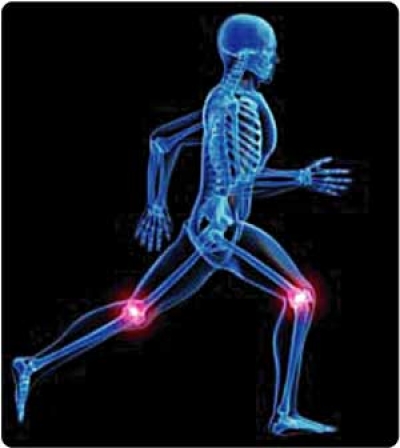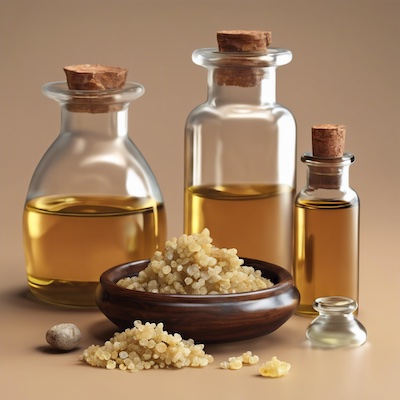Dietary supplements glucosamine and chondroitin became famous in the U.S. in 1997, almost overnight, after they were mentioned in the book The Cure for Arthritis, a bestseller by Dr. Jason Theodosakis from the Medical Faculty of the University of Arizona. The book describes about 30 clinical tests - mostly conducted in Europe - which have shown that glucosamine (derived from crab shells) and chondroitin (derived mainly from cow trachea) help in the fight against osteoarthritis.
Promising Research
Research has generally shown that glucosamine and chondroitin work significantly better than placebo in terms of relieving pain and improving mobility of patients suffering from osteoarthritis. In addition, the supplements were at least as effective as non-steroidal anti-inflammatory drugs (NSAIDs) such as ibuprofen, all of which are proved to be quite safe with very few side effects.
NSAIDs and other drugs currently used to treat OA can only help in the alleviation of symptoms – and NSAIDs may cause serious side effects, especially when taken over a prolonged period. This explains the growing public interest in glucosamine and chondroitin sulfate, which seem to be equally effective as some NSAIDs, but much safer.
Mode of action
When glucosamine and chondroitin are ingested, they enter the bloodstream and act biochemically beneficial on the joints. It is still not clear how these two supplements relieve symptoms of osteoarthritis, but the evidence suggests that they can slow the deterioration of cartilage and may even help restore cartilage that has begun to deteriorate. In the joints of the human body, glucosamine and chondroitin are important cartilage building elements - particularly proteoglycans, large molecules that give cartilage toughness. It seems that taking glucosamine supplements helps fight osteoarthritis by stimulating chondrocytes (cells that produce cartilage) to produce more cartilage. chondroitin, it seems, helps protect against osteoarthritis by acting on enzymes that destroy cartilage.
Glucosamine sulfate and chondroitin sulfate can be purchased separately or combined in the same supplements. Although the combined products should theoretically be more useful than a product with only one ingredient, most clinical trials studied glucosamine or chondroitin separately rather than combined.
So far, all studies conducted in the United States on the combination of glucosamine and chondroitin used only one product, Cosamin DS. The results of two clinical trials with a control group who received placebo were published recently. One included 34 US Navy men who were suffering from osteoarthritis of the knees or lower spine, and the other included 100 patients with knee OA. In both studies, patients who took dietary supplements generally noted greater alleviation of pain than patients in the group who took placebo.
Conclusion
Both glucosamine and chondroitin sulfate seem promising when it comes to treating osteoarthritis. More research is needed to prove their effectiveness, but they really seem to soothe the symptoms of OA, whereas at the same time carry relatively little risk. Since they do not appear to be influencing the action of other drugs for OA, such as NSAIDs, they will perhaps allow you to reduce the dose of NSAIDs you are currently taking. But in any case, consult with your doctor before you change the dose.
Consumer guide: What you need to know before taking glucosamine and chondroitin sulfate
- Research shows that it usually takes a 30 to 90 days before consumers of glucosamine and chondroitin observe any benefit, the difference being one to two weeks, depending on whether they are taking NSAIDs. If you do not notice any improvement after two months, these supplements are probably not for you.
- Glucosamine hydrochloride is a concentrated form of the substance so it can be more effective than glucosamine sulfate. However, in the UK, the sulfated form is generally easier to find, although glucosamine hydrochloride can be purchased over the internet.
- In most clinical trials on glucosamine and chondroitin, the drugs were used in doses of 1200 mg of chondroitin sulfate and 1500 mg glucosamine sulfate per day. Lower doses may be ineffective.
- Diabetic will probably want to avoid glucosamine or measure there blood sugar more frequently because animal studies suggested that glucosamine may interfere with insulin resistance.
- People who suffer from clotting disorders or are taking anti-blood clotting drugs (anticoagulants) should know that chondroitin sulfate also has an anti-clotting effect.







